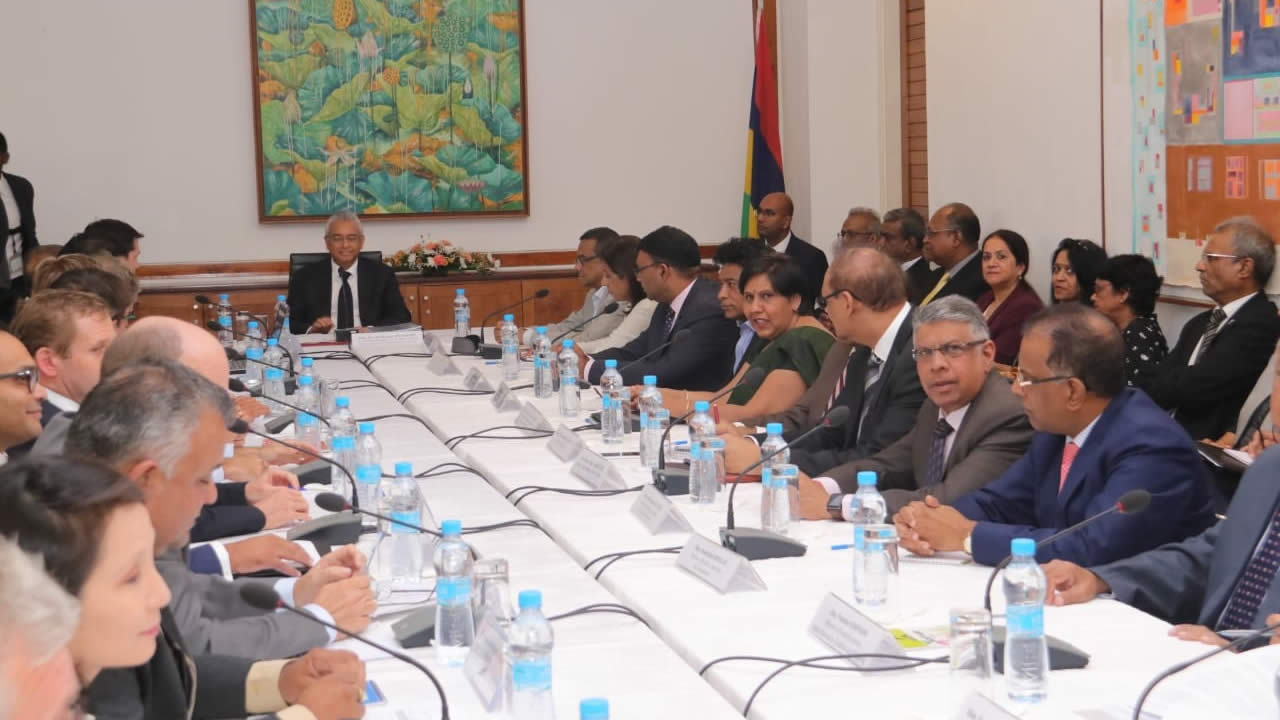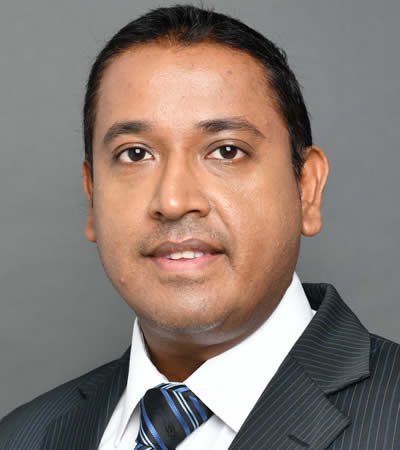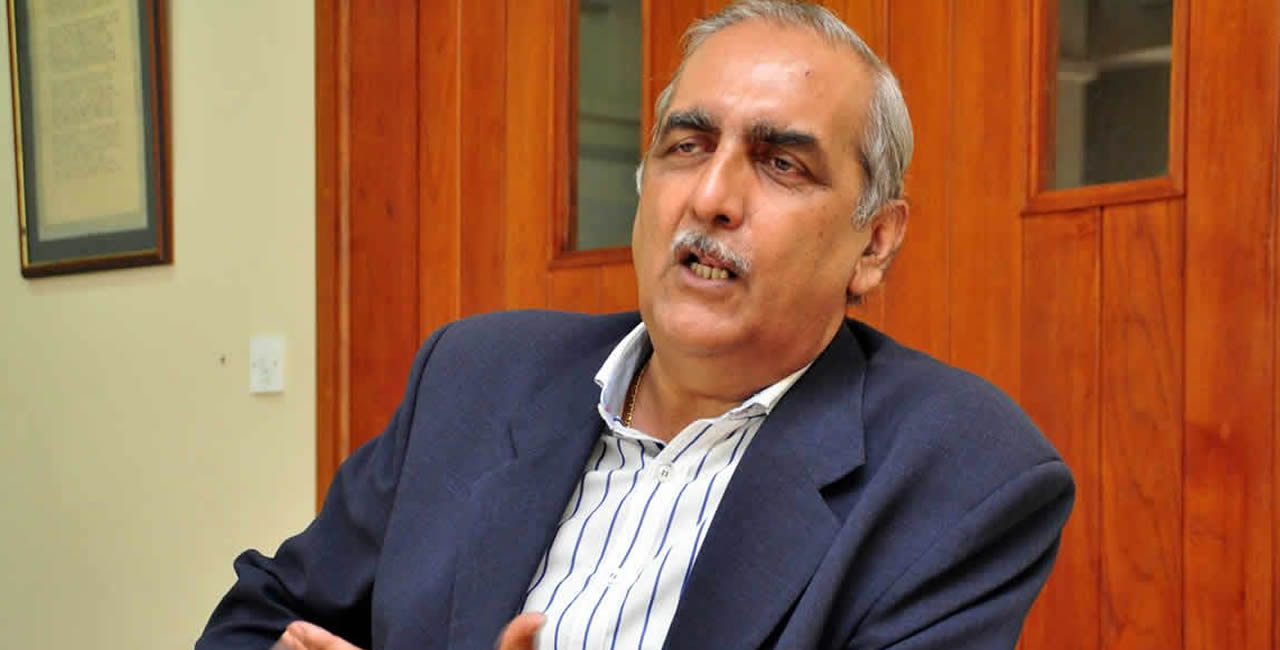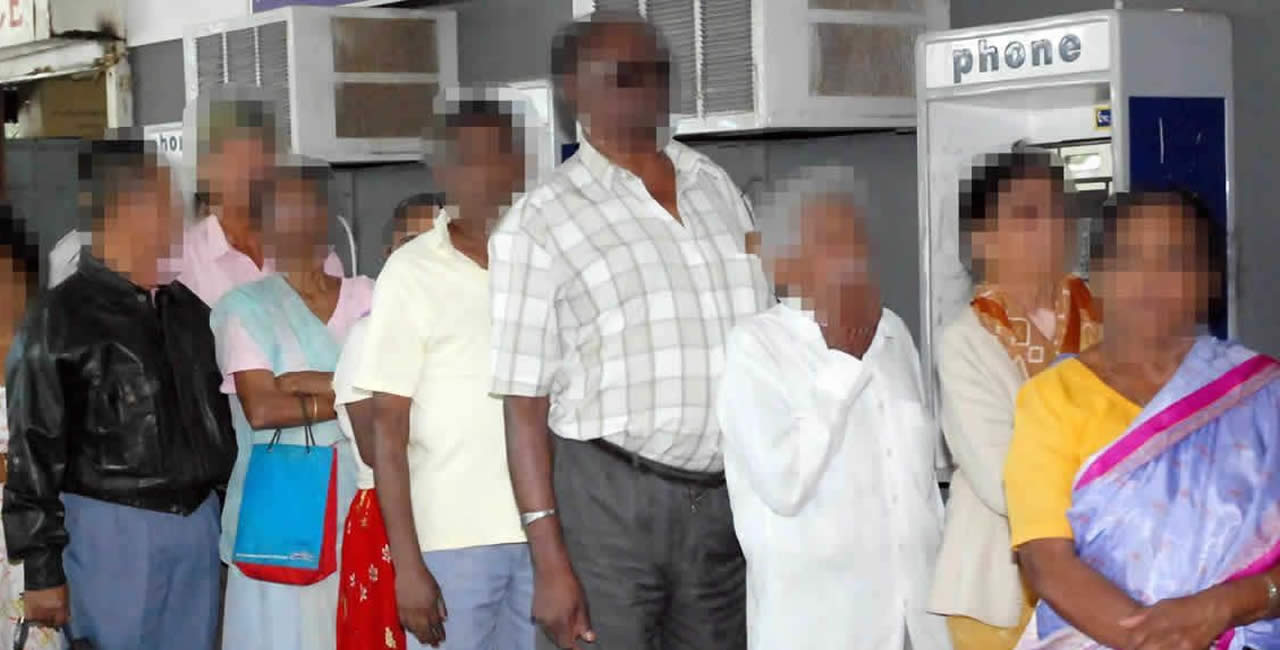Budget 2019/2020: Populist measures : does the Prime Minister have hand free?
 Par
Nafissah Fakun
Par
Nafissah Fakun
 Par
Nafissah Fakun
Par
Nafissah Fakun

Expectations are high for the forthcoming 2019/2020 Budget, as it is the last one of the present legislature before the next general elections. However, several challenges on the social and economic fronts lie ahead. How much leeway does our Minister of Finance have to come up with a budget that will meet the expectations and demands of the people, the private sector, trade unions and others? Is it wise for him to come up with a populist budget?
Preparations are under way for the presentation of the next budget. In a statement to the press on Wednesday 8th May, following pre-budget consultations which kicked-off, the Prime Minister and Minister of Finance uttered that his Ministry has not yet decided on a date for the budget presentation. “We are still working on it. I have an extremely busy agenda. I have certain obligations that I have to look after. We are on the Chagos dossier and preparing our resolutions,” said Pravind Jugnauth.
The latter heard the proposals of trade unionists and representatives of Small and Medium Enterprises on Wednesday. On Thursday 9th May, the Minister of Finance met with key representatives from Business Mauritius: Association of Mauritian Manufacturers, Mauritius Bankers Association Limited, among others. Several other meetings with representatives of various parties are also on the agenda on Friday 10th May, namely with non-governmental organizations, consumer rights associations, women's organisations, and a host of others.
Among the listed ten priorities of the 2019/2020 Budget, the Ministry of Finance aims to deal with the challenges facing the sugar and manufacturing sectors, including textiles, invest in new pillars of growth, in particular, AI technologies, further opening up and integrating our economy with the rest of the world, address the impact of demographic change, build greater resilience to the impact of climate change.
Despite the fact that our economy has been affected in various ways and sectors such as manufacturing and tourism that have shown signs of weaknesses, the Government seems determined to face the socio-economic challenges ahead. On the other hand, the population and stakeholders’ of all sectors and institutions have high expectations given the many major proposals made during the pre-budget consultations.
According to Boodeo Nem, Economist and Lecturer at the Middlesex University Mauritius, this year’s budgetary exercise is a “blue moon” experience, coinciding with the upcoming general elections. “Theoretically, Buchanan’s Public Choice Theory positions the Government as being a ‘vote maximizing agent,’ guided by its own self-interest rather than public interest. Would the 2019 Budget be influenced by this theory? Or will the interest of the people be at the heart of the Government’s budget?” he says.

For Boodeo Nem, the key word in the equation is ‘balance.’ “A balance between internal and external policies. The IMF country report No. 19/109 cautions about the slowdown in labour and capital accumulation and highlights the need to increase productivity to boost export-oriented industries. Mauritius is seen to lag behind in its innovative capacity, research and development ability and IT infrastructures with an acute shortage of skilled labour. It is time for our country to improve on sophisticating its export structure by adding high-end value items.”
He states that Mauritius ranks first by reverse order for its export complexity of goods as well as services. “All this, at a time when the country’s smooth ride is being disturbed by the rising inequality in the distribution of income and wealth, subsiding middle/working class, rising unemployment rates, especially among graduates, and ever mounting public debt.” The economist wonders whether it is enough to employ short-term boosts to the economy to increase growth rates or to brainstorm, plan and implement long-term measures to tackle these macroeconomic challenges. “Is it enough to simply satisfy factions of the economy for temporary appeasement or to establish permanent and robust measures for containing the macroeconomic and social evils? We will have to wait and see,” adds Boodeo Nem.

When it comes to the strategies that the Minister of Finance should be using for the upcoming budget, the Chairman of MindAfrica trusts that the budget “should, for all intents and purposes, be a continuation of recent budgets with their underlying philosophy of fairer distribution of wealth created in the country and with the ultimate aim of reducing poverty and inequality in distribution of income.” “Having said that, however,” utters Rajiv Servansingh, “one would also expect that measures are announced which will stimulate economic growth and socio-economic development. An emphasis on concrete measures that will support the growth of the ‘productive’ sectors of the economy (manufacturing and exports, agriculture, financial services, tourism, etc) will be most welcome. To answer your question, the strategy would be two-pronged: Stimulating economic growth and ensuring a fairer distribution of the wealth created.”
Would it be wise for Pravind Jugnauth to come up with a populist budget? “We have to make a distinction between what is ‘populist’ and what is ‘popular.’ Rajiv Servansingh states that in parliamentary democracies all over the world, it is common practice for the incumbent government to keep an eye on the electorate when preparing the budget in an election year. “This is an inbuilt privilege. It comes with the baggage for the winner of a general election. At the end of the day, voters are discerning enough to make their own judgement and this constitutes the ultimate check on government profligacies.”
Regarding the Minister’s priorities for the budget, Rajiv Servansingh explains that there are two sets of priorities. “A first set of measures must be taken immediately to improve the supporting environment and facilitate the turnaround of existing industries which are facing temporary or cyclical challenges. Unfortunately, in the present global environment (Brexit, trade wars, etc.) three of our principal economic pillars - agriculture, tourism and manufacturing, are facing dire circumstances. Specific measures need to be taken to support them to face these difficult moments.”
“The second set of priorities,” underlines the latter, “would constitute of policies aiming at radically transforming the characteristics of these same industries in the medium- to long-term. Such transformation would be focused on the need to improve their productivity and turn them into globally competitive players. To achieve this, the Government would need to apply fiscal incentives as well as facilitate the emergence of a whole eco-system which nudges these industries towards the adoption of innovative processes, new technologies and management methods while diversifying their markets and products,” he states.
Questioned about the main constraint for the Minister of Finance, Rajiv Servansingh explains that the main constraint for any Minister of Finance is “always to achieve a fine balance between the demands of capital and labour, between favoring wealth creation and ensuring a fair distribution of the wealth created while ensuring that macroeconomic parameters remain sound. This is especially true in Mauritius where socio-economic progress has always been a function of successful institutionalized balancing of the interests of capital and labour through the mechanisms of the much touted public-private partnership for economic development and the consensus for maintaining the Welfare State.”
 Lindsay Rivière : “It is a time for fiscal responsibility not lavish spending”
Lindsay Rivière : “It is a time for fiscal responsibility not lavish spending”According to the political observer, the Minister of Finance’s room for maneuver for the upcoming Budget is going “to be fairly tight.” Lindsay Rivière states that the “national economy is not doing very well, the national debt has been increasing at an average Rs 20 billion per year, which means debt repayment will take up a much larger amount than in recent years. What will help him though is that VAT will most likely bring in higher revenues as consumption increases regularly, representing an ever-increasing share in the national growth figure.”
He explains that “this is a time for fiscal responsibility not lavish spending for political reasons. Other than the usual tax and excise increases on cigarettes, alcohol, etc., the Minister must resist the easy solution of changing the tax regime for individuals or companies.”
Asked whether or not it will be wise for Pravind Jugnauth to make a populist Budget, Lindsay Rivière trusts that the temptation will be strong. “The political calendar, with elections within 8 to 10 months, will be an irresistible temptation to distribute goodies around. Investors and a number of observers are watching to pass judgment on the degree of seriousness of this Government. However, the Government will be fighting for its political survival, so expect some populism,” he says.
The political observer is of the opinion that there will be two major constraints ahead of the Minister of Finance, namely “the national debt repayment obligations will take up a larger share of the Budget and the Rs 60 billion Welfare Budget of the State.” He utters that the “Government will have to provide for free University education, as promised. It will also have to keep supporting the institutions set up to mop up the BAI problems, and that runs into billions. So the Minister is walking a tight rope. There are many reasons for fiscal discipline. It will be a delicate balancing act. Let’s hope Pravind Jugnauth acts very responsibly.”
Lindsay Rivière trusts that the Minister of Finance’s priority for the Budget 2019/2020 should be “to get the economy moving by stimulating the export sector, thereby closing part of the huge trade deficit (Rs 120 billion) and its impact on the balance of payments. Stimulation packages should be high on the agenda for the agricultural (mostly sugar) and textile sectors. Tourism has to be given special attention as we cannot afford a slide in that area. Problems at Air Mauritius have to be solved as the company brings in half of our tourists. Courageous decisions have to be made as far as better targeting social programmes are concerned. Finally, Government should urgently review Foreign Direct Investment policies so as to increase really productive FDI in key manufacturing sectors and services and not only attract real estate investments which have no long-term benefits.”

 J'aime
J'aime